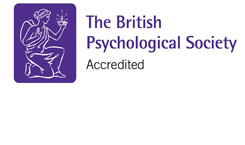| UCAS code | 1234 |
|---|---|
| Duration | 3 years full time |
| Entry year | September 2024 |
| Campus | St Luke's Campus |
| Discipline | Education and Teacher Training |
| Contact | Programme Director Dr Andrew Richards |
| Typical offer | A 2:2 honours degree in psychology granting you the Graduate Basis for Chartered Membership of the British Psychological Society; other requirements are also essential – |
|---|---|
Overview
- A programme of advanced professional training in educational psychology, recognised and accredited by the British Psychological Society and approved by the Health and Care Professions Council
- Taught in an internationally recognised centre for educational research
- As a trainee you will be placed with Educational Psychological Services and other placement providers for supervised practical experience
- If you are UK resident you may be eligible to apply for a funded place
- Course emphasis that psychology should be concerned with developing the capacity for humanity in ourselves and in others
Contact
Programme Director: Dr Lata Ramoutar / Dr Will Shield
Email: dedpsych-enquiries@exeter.ac.uk
Phone: 01392 726295
![]()
100% of our Education research has internationally excellent impact*
Based on research impact rated 4* + 3* in REF 2021*
![]()
Top 150 in the world for Education
The Times Higher Education World University Rankings by Subject 2023
![]()
Home to one of the largest Education libraries in the UK
![]()
A lively and interesting range of learning and training experiences across a range of educational settings
Entry requirements
Essential
- At least a 2:2 honours degree in psychology that grants you the Graduate Basis for Chartered Membership of the British Psychological Society
- Normally one year's experience of working with children or young people (0 – 19 years)
- IELTS score of 7.5 or equivalent where appropriate
- Clean driving licence or access to a car and driver or a willingness to travel large distances in rural settings on public transport
- Enhanced level DBS check (or equivalent for non-UK applicants)
Desirable
- A critical understanding of current educational policy and practice
- An understanding of the educational and psychological issues in promoting social inclusion
- An ability to join with others to form an effective group
- An awareness and understanding of the effect one might have on others in a range of interactions
- Evidence of applying psychological knowledge in a range of settings including educational settings
- A lively and current knowledge of psychological theory and its generation
- An understanding of the role of educational psychologists and of a stance that is ethical and underpins the role
- A practical understanding of how psychology may be used to promote equality
- Evidence of an ability to reflect on practice
- An awareness, understanding and appreciation of the issues involved in safeguarding children, young people and vulnerable adults, and an ability to apply policies and procedures aimed at safeguarding children, young people and vulnerable adults
- Adaptability and flexibility in response to change with the potential for personal and professional growth
- An awareness of one's own health and how variations in health may have an impact on one's ability to practice safely and competently
Application
This course is part of the Educational Psychology Funded Training scheme which provides funding in partnership with employers for the training of educational psychologists. The Exeter course does not accept self-funded applications.
Your application for this course should be made via the Association of Educational Psychologists (AEP), not directly to the University of Exeter, although we will be happy to answer any queries.
Whilst all applicants will be judged on merit, we particularly welcome applications from groups currently underrepresented on the programme, including Black, Asian and minority ethnic students; male students; care-leavers, and mature students.
Application for 2025 entry will open around mid-September 2024. Please sign up on the AEP website or contact EPFT@aep.org.uk if you wish to be notified when it opens.
When making your application, the programme code for this course is A760.
Please see the course website and the AEP website for further information about the application process.
Entry requirements for international students
Please visit our entry requirements section for equivalencies from your country and further information on English language requirements.
Entry requirements for international students
English language requirements
International students need to show they have the required level of English language to study this course. The required test scores for this course fall under Profile . Please visit our English language requirements page to view the required test scores and equivalencies from your country.
Course content
For more information about this course please see the course website.




